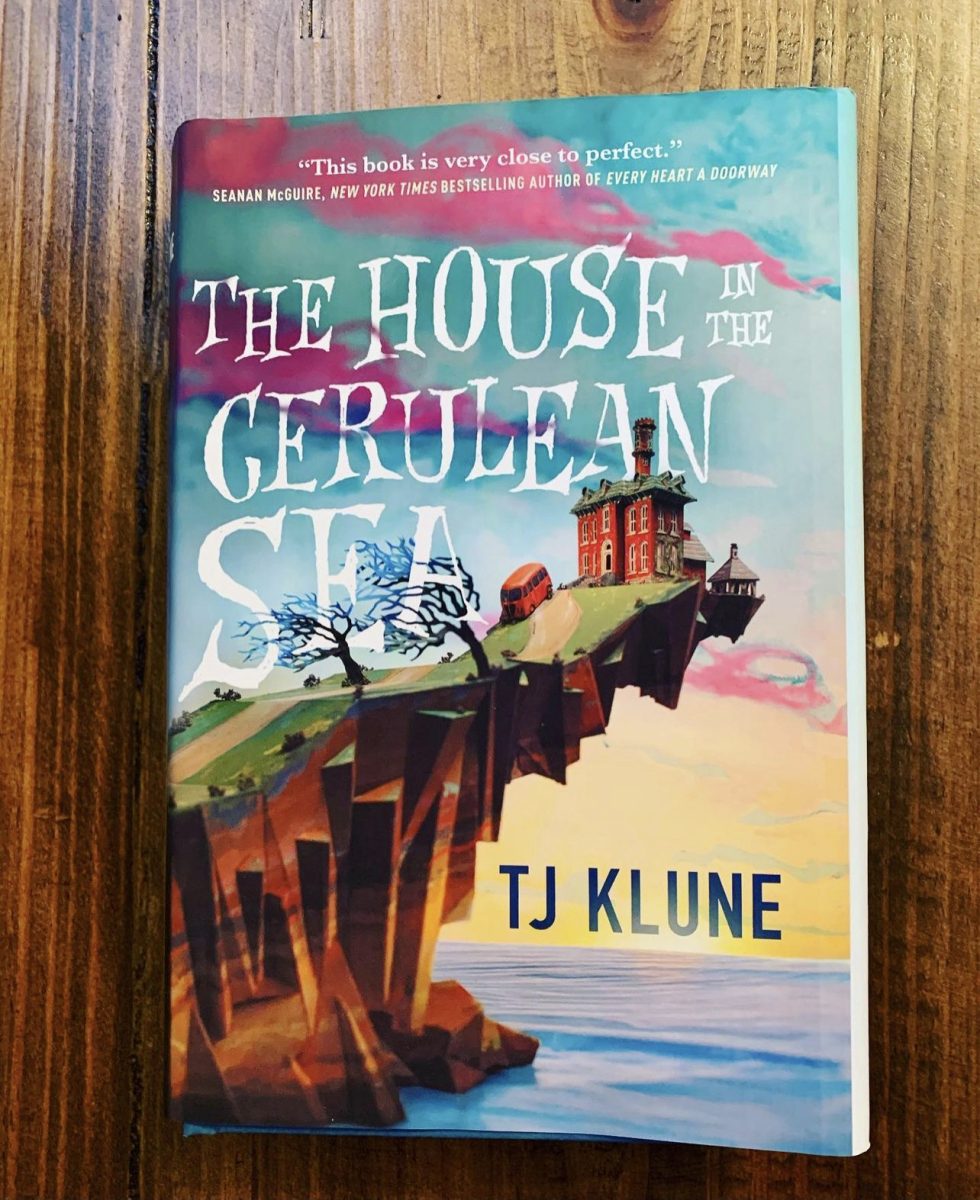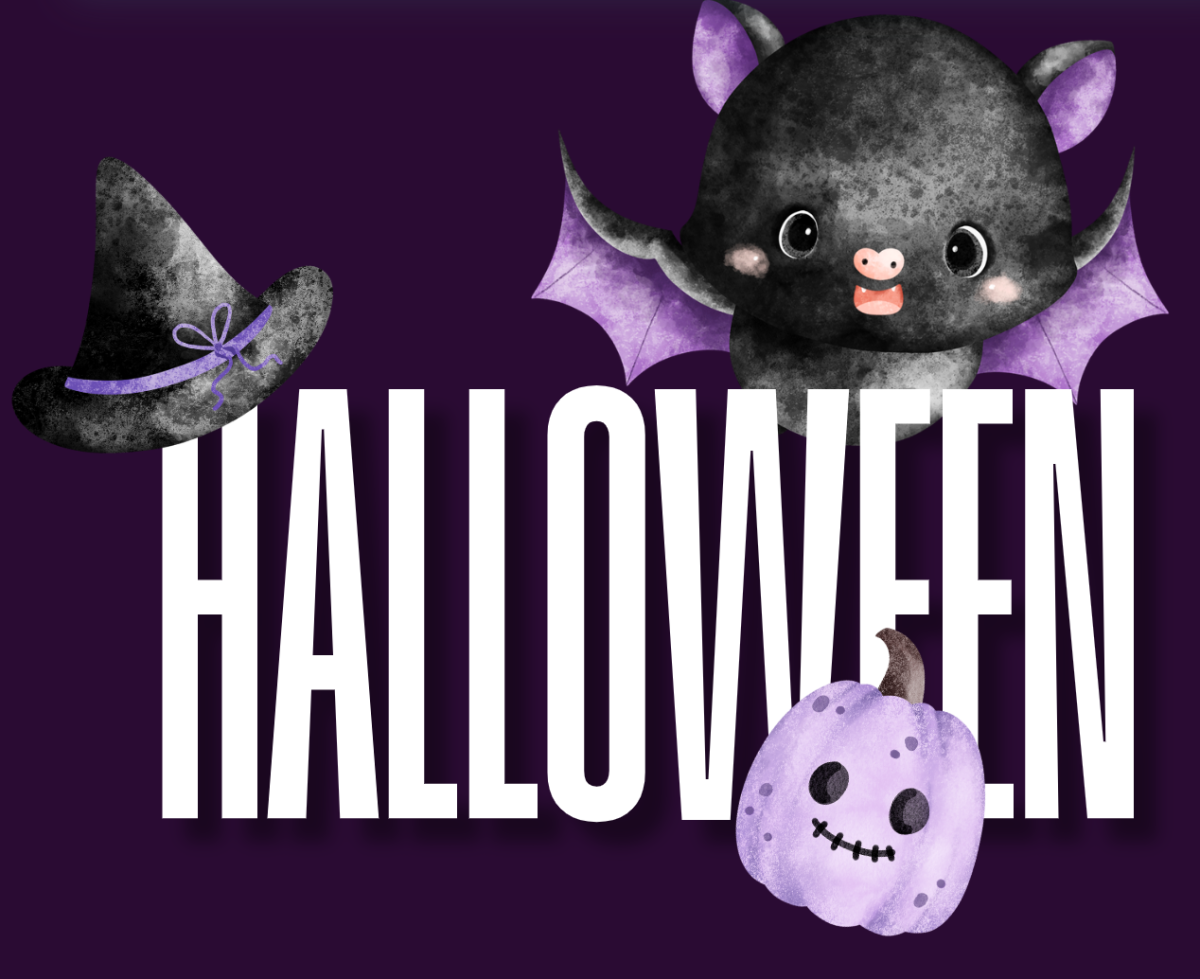When “The House in the Cerulean Sea” by T.J. Klune was brought to my attention with raving reviews from friends, I assumed it would be a romance novel where maybe one character has a career to flesh out the rest of the book. Too often that happens, but no, this novel was much more than that.
“The House in the Cerulean Sea” is a young-adult fantasy novel told from the perspective of a 40-year-old man named Linus Baker. He lives a solitary life with his cat and works for the Department in Charge of Magical Youth (DICOMY). He is given a classified assignment by “Extremely Upper Management” to a small orphanage of said magical youth on Marsyas Island. The orphanage is managed by a 45-year-old man named Arthur Parnassus, and is home to six children: Talia, a gnome; Phee, a sprite/fairy; Theodore, a wyvern; Sal, a shapeshifter (but one who can only turn into a pomeranian and is triggered to change when he feels threatened); Chauncey, an unidentifiable glob of gelatinous substance who longs to be a hotel bellhop; and Lucy, the son of Lucifer (indeed, Satan). While Linus is staying at the orphanage his job is to observe the quality of life the children are receiving under Arthur’s care. However, his stay quickly becomes more personal than a job as he gets to know the children and joins in on their upbringing and care.
The world-building in this novel is remarkable as the reader follows Linus on his travels from his city townhouse through the country to the bridge that leads to the orphanage on Marsyas. We get to know not only the settlement on the island where the orphanage is, but also the connecting town across the bridge on the mainland. This is where the general conflict in the novel arises, since magical people are not accepted in their society. As Arthur and Linus take the children into town to enrich their adult skills, the children face discrimination by those citizens who believe them to be dangerous and evil.
There’s no denying that the plot is predictable. It is a story of acceptance and a fight for equality, but extremely simplified. The moral of the story almost feels like a children’s book; this book would have become my religion had it been released when I was in middle school. In fact, I find this to be the only fault of the story. Since there’s no real mystery in how it will end, some parts of the book feel a bit like you’re just trudging through to get to the end result.
Klune does make up for this a bit, however, in the mystery of Arthur Parnassus. During Linus’s stay at the orphanage, he learns that Arthur has a history with this orphanage and takes rather improper methods to discover more about him. I say this only makes up for the cliches a bit because most of Arthur’s story is predictable as well; just the specifics of it are pretty creative! If Klune could create a viable character, who is a viscous blob, the whos and whats when it comes to the characters are open to anything under the sun.
A personal gripe I did have with this novel is the incredibly long, savior-complex-filled speech that Linus gives toward the end of the novel. As said before, there was no secret as to where the story was going, so the fact that Linus declared it for so long and so loudly felt a bit insufferable. However, it is such a small part of an incredibly immersive story that it was easy for me to overlook and forgive.
If you’re looking for a book that’ll be easy to read, but still entertain and give you a nice warm feeling, I would highly recommend “The House in the Cerulean Sea.” Despite my harping on the cliches, who doesn’t love a good cliche once in a while? Whether you’re an avid reader or just pick up a book once in a blue moon, you won’t want to put this book down.











































































































































































































D Houck • Jun 15, 2024 at 10:41 am
I LOVE this book, have given several copies to friends & strangers that saw me reading it or wearing my shirt with the children’s names! I just bought three more copies for future distribution (10-12)! A beautiful story with a strong base of characters and inclusive message delicately told!